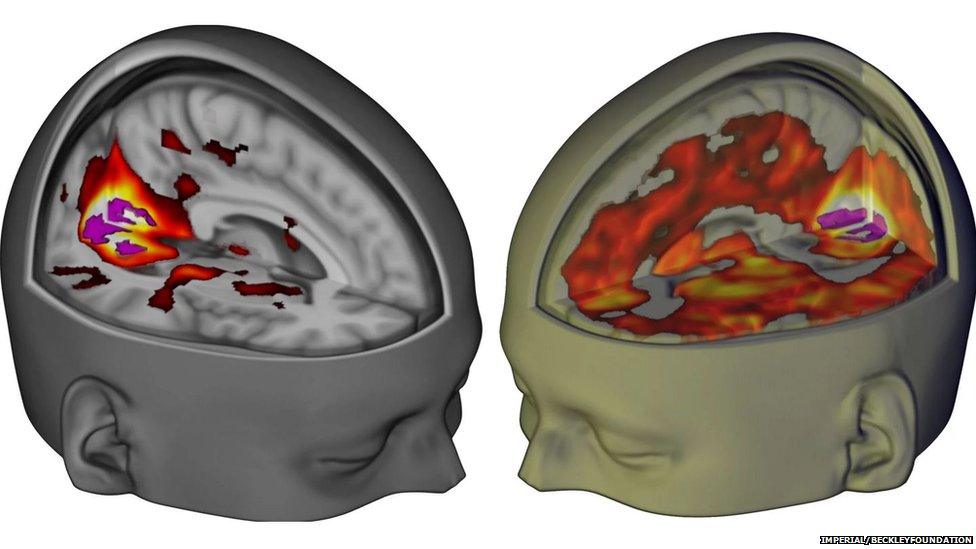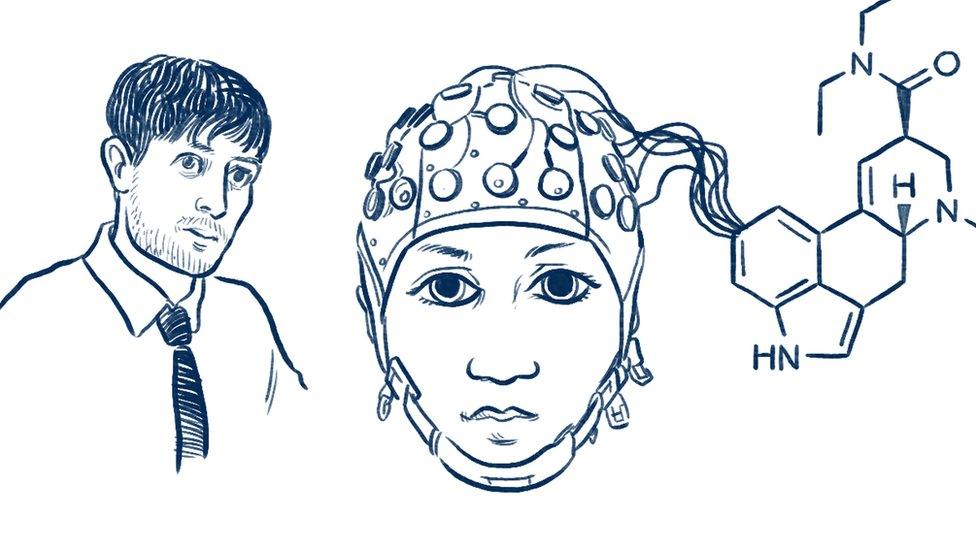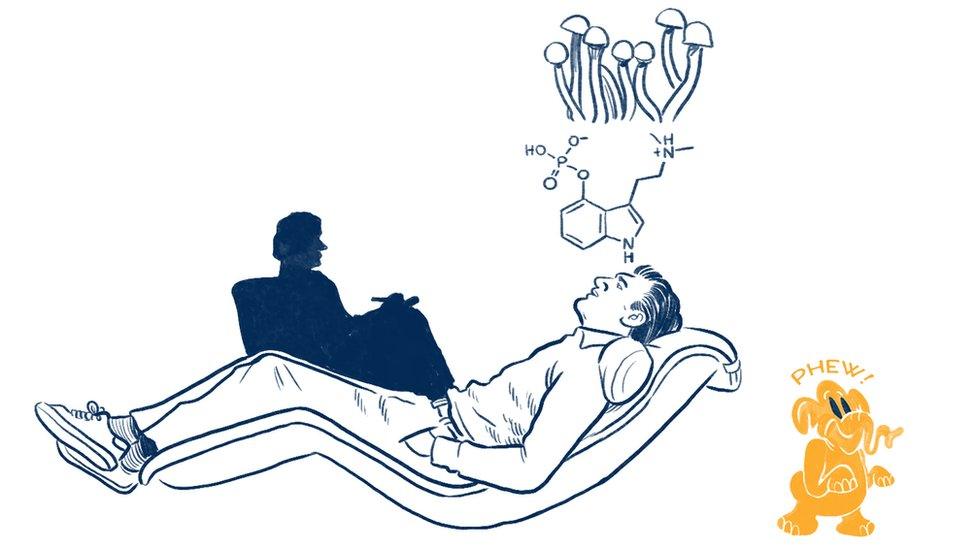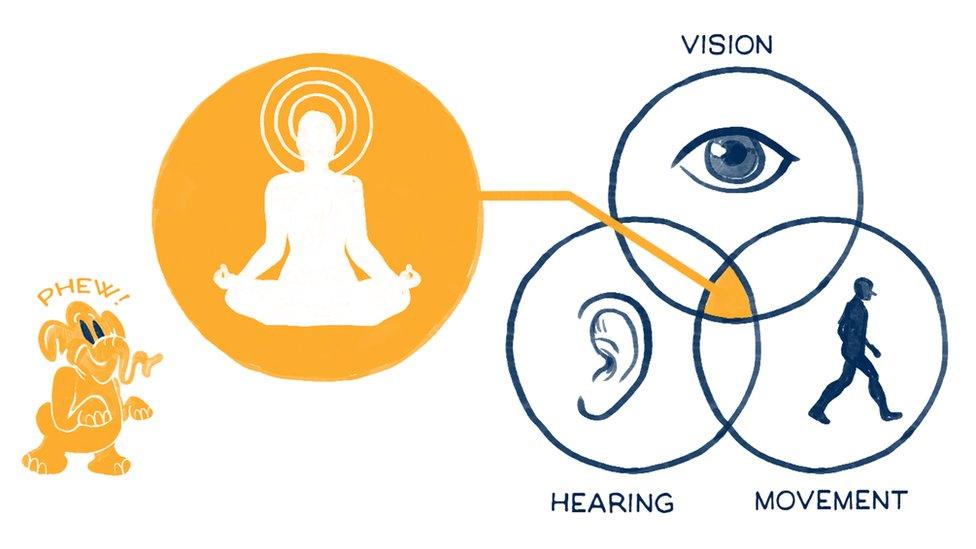What LSD does to your brain
- Published

A dose of LSD "unleashed a wave of changes that altered activity and connectivity across the brain"
It's a powerful hallucinogenic drug which can change the way you see objects and reality.
Now after "50 years of waiting" scientists at Imperial College London have gained a unique insight into how LSD affects the human brain.
In a series of experiments 20 volunteers were injected with the Class A drug while they underwent a brain scan.
It's hoped it "could be developed to treat some psychiatric disorders".
Scientists found the drug broke down barriers between parts of the brain which usually control separate functions like vision, hearing and movement.



Illustrations by Andrew Park BBC Radio 4/The Today Programme
Watch the animation: What LSD does to your brain
The findings also suggest the drug can lead to a better sense of wellbeing as the effects wear off, meaning LSD could be possibly used in some treatments.
As the volunteers in the study started to "trip out" with hallucinations, scans showed they received information from many parts of the brain.
Regions that were once separate sometimes "spoke with each other".
David Nutt, a senior researcher on the study, said: "This is to neuroscience what the Higgs boson was to particle physics.
"We didn't know how these profound effects were produced. It was too difficult to do.
"Scientists were either scared or couldn't be bothered to overcome the enormous hurdles to get this done."

A batch of LSD in the form of postage stamps
LSD normally comes in tabs or pellets which are swallowed.
There's more information on LSD here, external. And you can find BBC Advice on drugs here.
Find us on Instagram at BBCNewsbeat, external and follow us on Snapchat, search for bbc_newsbeat